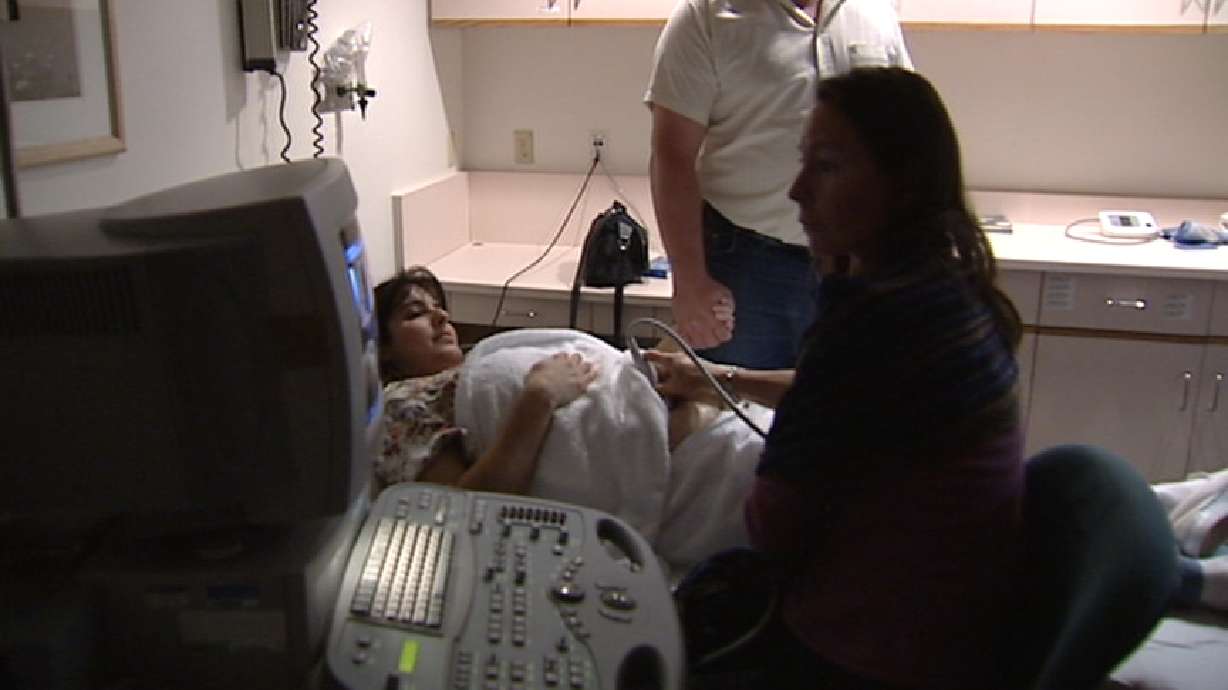Estimated read time: 2-3 minutes
This archived news story is available only for your personal, non-commercial use. Information in the story may be outdated or superseded by additional information. Reading or replaying the story in its archived form does not constitute a republication of the story.
Ed Yeates ReportingPregnant women now have an earlier, less risky, and more accurate test for fetal down syndrome. A groundbreaking study here in Utah and eleven other centers across the country has established what could now be a new standard for detecting this birth defect.
This is the largest obstetrical-maternal study ever funded by the National Institutes of Health. More than 38-thousand women volunteered. 12-thousand were from Utah. Millions of expectant mothers will now benefit from the results - a new kind of chromosome blood test for Fetal Down Syndrome combined with ultrasound that's extremely accurate.
Nancy Rose, Intermountain Health Care: "We think that these tests are approaching, almost approaching diagnostic accuracy."
T. Flint Porter, M.D., LDS Hospital Maternal Fetal Medicine Program: "With this new test the detection rate is greater than 90 percent. And the false positive rate, in some cases, is less than one percent."
What did that mean for 35-year old Suzanne Attix who volunteered for the study?
Suzanne Attix, Study Volunteer: "The faster study results gave me one in 5,000 results or more, and that's significantly a lower risk than just going by my age alone. So I was very pleased to have that level of confidence."
Confidence, very early in her pregnancy, that her girl who is now three-years old, would be born healthy and well. It also meant that Suzanne did not have to have a risky amniocentesis that can sometimes cause a miscarriage.
Suzanne Attix: "It's non-invasive. There's no risk to your unborn child, and it give you peace of mind. It certainly did me."
LDS, University of Utah, Mckay Dee, and Utah Valley Regional hospitals were all part of the study.
Dr. Porter: "It already has started to spread throughout the country, and I think it's going to become the standard of care."
The early test offers parents more peace of mind when the results are normal, more preparation time for a baby with special needs if it's not. The first portion of the testing is given between week eleven and 13 in the pregnancy.









